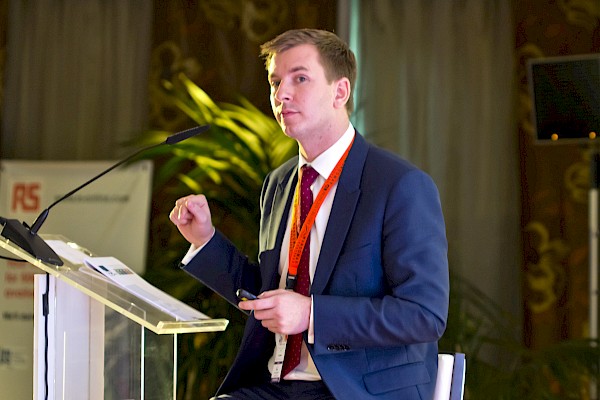Schengen visas can make or break a port call
Wednesday, December 10, 2014 - 09:11 by ce-press
The Schengen visa is a document allowing visitors to travel freely within Europe but the UK is not included and this is causing some major headaches for cruiselines on certain itineraries.
It is a subject that Adam Sharp, manager port operations & guest port services UK, Northern Europe and Middle East Royal Caribbean Cruises Ltd (RCCL), knows well and is one that may effect you more than you realise so please read on.
When planning itineraries these days whether ports are within the Schengen area or not and how the immigration officials of a particular country police their borders can dictate the success or demise of a port call.
One example is that of Visby in Sweden which could potentially end up being dropped from a RCCL itinerary due to the time-consuming immigration procedure which appears to be entirely unnecessary. RCCL is assessing its options on an ex-Harwich itinerary which enters Schengen in Copenhagen, exits in Helsinki to go to St Petersburg, re-enters in Tallinn and exits in Visby.
The reason being that the latter requires that all non-EU passengers have their passports stamped which is a time-consuming process particularly it being a tender port. To add insult to injury the process has to be done as guests are disembarking to go ashore rather than when they finally exit the Schengen territory.
The law in actual fact states that each country has the ability to assess and adapt the code in order to meet their unique and often local conditions, hence why some countries have enacted a more pragmatic approach to cruise tourism when transiting through their ports and countries.
Hence this is a procedure required in Sweden whereas Norway and Denmark have opted to take a more flexible attitude. As a result one of the latter looks likely to benefit in having a port chosen as the exit port on the itinerary.
Sharp comments: “Helsinki has made the rational decision. Instead of having ot see over a thousand non-EU guests they accept that as long as we do not disembark guests in Russia and therefore return to the Schengen territory in Estonia there is little point inspecting all these guests and passports. This is a wholly rational and sensible way of working and should be applauded.”
In the UK too it is not plain-sailing even though there are many positive signs. Sharp explains: “We have started to see the wheels of improvement start turning.” Much of this he attributes to Phillip Duffy, head of UK Border Control (UKBC). The first signs of this came in January 2013 when UKBC started accepting the cost for en route clearance, for example of passengers arriving from Hamburg into the UK. “At least now we can operate more fluidly when we arrive in port”.
However he points out there are “still inconsistencies across border force teams”. The most recent of these occurred when RCCL’s Quantum of the Seas sailed its two-day inaugural roundtrip Southampton. Due to it sailing into international waters UKBC was adamant that an immigration check take place. Only an appeal to Duffy got the decision overturned.
The fact that cross-channel ferries and yachts sail out of UK into international waters without a requirement for immigration checks makes it even more difficult to comprehend. Sharp comments: “It is frustrating when trying to run a business.”
Another example of the anomalies involved in the system is that of Azamara Quest calling Greenwich in the Thames estuary which now comes under the auspices of Southend airport. Immigration officers were dispatched to board the ship and all the Brits and Europeans on board were required to fill in immigration cards due to it being an American ship.
And it is not just in the UK that cruiselines are coming up against these problems but in the wider European sphere. Sharp attributes it to an immigration-averse populus and the politics of different countries. He mentioned that even the UK’s own armed forces when returning from Afghanistan to their own bases are being checked.
Another example is that of an itinerary leaving Harwich and calling Le Havre, Portland (UK), Madeira and Azores where immigration checks were carried out in both Harwich and again in Portland due to the vessel calling France in between.
“It is these types of of absurdities that make UK cruises tougher to operate. Cruiselines are now questioning whether UK is the right place to operate cruising. RCCL have to accept it but we are beginning to have conversations about, for example, leaving Portland out,” Sharp says.
And the code has other ramifications too. At present Cruise Lines International Assocation is working with the Italian presidency to revisit the application period for a visa under Schengen beyond three months. The reason for this is that it is effecting forward bookings as non-European passengers are not going to buy a cruise 18 months out without knowing a visa can be secured.
All this adds up to the fact that while the freedom to travel within Schengen is a fantastic piece of legislation to come out of the EU, it can have an extremely negative effect if it is not applied with a degree of common sense and consistency.

Adam Sharp at the International Cruise Summit 2014 (c) ICS 2014
Related port
